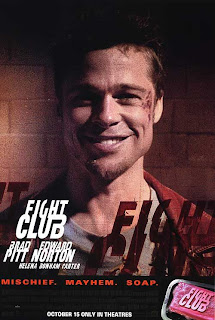

"Benjamin Button" and "Fight Club" actually deal with similar themes: having a finite amount of time in life, and what we should do with it. But they come to such radically different conclusions. In "Fight Club," the response to mortality is nihilism, anarchy -
[Laughs] That was a Nineties conclusion. Now we have an Aughts conclusion. I actually never thought of what you just said. But it's probably true.
It's just, "Benjamin Button" feels very positive, but you could easily come away from that story feeling very bleak.
Yeah, I think it's open to...it's your choice. I find "Benjamin" is about those universal things we all share - that 95 percent that makes us all the same, wherever we are in the world. Our loves, our hopes, but also the loss that we all walk arounf with and hide very well, and the ultimate notion that we're all expendable. To me, it's a counterstatement to this divisive period we've been in, where we focused on the two, three, four five percent of ways in which we're different.
Had you read Fitzgerald's short story?
No, I still haven't read it. I was told it had nothing to do with the movie, really. I was moving full-steam on Eric's (Eric Roth, scriptwriter) version, which he based on that saying "Youth is wasted on the young."
- Rolling Stone interview, Mark Binelli, RS 1068/9, Dec 25, 2008 - Jan 8, 2009.
No comments:
Post a Comment